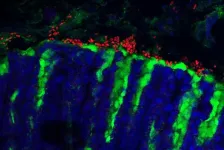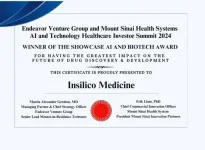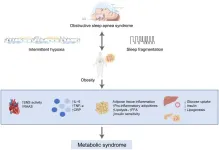Huge cost savings from more efficient use of CDK4/6 inhibitors in metastatic breast cancer reported in SONIA study
Similar effect, less toxicity and lower costs
2024-11-27
(Press-News.org)
On November 27, the prestigious journal Nature will publish the results of an innovative breast cancer research project from the Netherlands. This study, the SONIA trial, showed that delaying and shortening the duration of a specific anti-cancer therapy (CDK4/6 inhibitors) in patients with hormone receptor-positive advanced breast cancer leads to similar survival outcomes, while reducing toxicity and achieving substantial cost reductions: over 45 million euros per year in the Netherlands and over 5 billion dollars in the United States. This is the first time an efficiency study like this has been conducted in collaboration with Dutch health insurance providers and the Ministry of Health, and it highlights the importance of research into the efficient use of medicines for patients, physicians, and policymakers worldwide.
The SONIA study
CDK4/6 inhibitors have shown tremendous improvements in outcomes for women diagnosed with advanced breast cancer when used in conjunction with endocrine therapy. The inhibitors can be added to either first- or second-line endocrine therapy. The SONIA trial was initiated to find out which of these two moments of adding CDK4/6 inhibitors is the best. All patients in the SONIA trial were randomly assigned to one of two groups. One group received a CDK4/6 inhibitor immediately after diagnosis of advanced breast cancer (first-line treatment). The other half received a CDK4/6 inhibitor after previous endocrine therapy had failed (i.e. second-line treatment).
The SONIA team found that the time in which the breast cancer remained under control (progression-free survival) was similar in both groups, as was the survival and quality of life. Patients who received a CDK4/6 inhibitor directly, used the drug for approximately 16.5 months longer than patients who received a CDK4/6 inhibitor as second-line treatment. This significantly longer duration of CDK4/6 inhibitor treatment provided no benefit to the patients, but did result in 74% more side effects and more hospital visits.
A second-line CDK4/6 inhibitor strategy reduces 'hospital time' in a context where time is precious. As one participant put it: "I am currently on endocrine therapy without CDK4/6 inhibitor treatment. I have no toxicity and I can work full time, which has a positive impact on my quality of life.
In addition, the longer duration of CDK4/6 inhibitor treatment associated with first-line use results in significantly higher costs to society (± € 30,000 more per patient based on Dutch price levels and up to $5 billion in the US). The conduct and results of the SONIA study have led oncologists in the Netherlands to prescribe CDK4/6 inhibitor treatment after failure of first-line endocrine therapy. Anually, 1.700 patients in the Netherlands are eligible for CDK4/6 treatment. Implementation of the SONIA study results will therefore reduce the burden on the healthcare system, with cost reductions of over €45 million per year while maintaining clinical efficacy.
Efficiency research
New cancer therapies have greatly improved the outlook for many patients. However, these new therapies are associated with more side effects and higher costs. This is why research into the efficient use of drugs (e.g. shorter duration, lower dosage, less frequent administration) is crucial and holds great promise for both patients and society, as the SONIA study has shown.
Collaboration with patient advocates and the Dutch government and health insurance providers as trial funders are key success factors for the SONIA trial. Today's publication in Nature underlines the potential of this type of self-funded efficiency research. The SONIA results reaffirm the need for robust sequencing trial data to determine the optimal use of our available therapies. Importantly, this type of mostly post-marketing academic research can be very beneficial to patients and society and should be conducted more frequently.
The SONIA study is initiated by medical oncologists Agnes Jager (Erasmus Medical Center Cancer Institute), Inge Konings (Amsterdam University Medical Centers), and Gabe Sonke (Netherlands Cancer Institute), collaborating in the Dutch Breast Cancer Research Group (BOOG).
END
ELSE PRESS RELEASES FROM THIS DATE:
2024-11-27
A fungus discovered in the mouse stomach may hold a key to fungal evolution within the gastrointestinal tract, according to new research led by Weill Cornell Medicine investigators. The finding suggests that preclinical studies until now have overlooked a major influencer of mouse physiology.
Scientists recently have come to appreciate the importance, for human health and disease, of microbes—often called “commensals”—that naturally dwell in the gut. Bacterial commensals, for example, are known to have ...
2024-11-27
Insilico Medicine (“Insilico”), a clinical-stage generative artificial intelligence (AI)-driven drug discovery company, is proud to be recognized for the impact on the future of drug discovery and development, as a distinguished honoree of the Showcase AI and Biotech Innovation Award on November 13, 2024, at the Fifth Endeavor Venture Group & Mount Sinai Health System Healthcare AI and Technology Investor Summit. Michelle Chen, Ph.D., Chief Business Officer of Insilico Medicine, received the award on behalf of the company.
Delivered ...
2024-11-27
Lugano, Switzerland, 27 November 2024 – The ESMO Asia Congress 2024 is the annual event dedicated to multidisciplinary oncology in the Asian region. It will feature a broad spectrum of topics in cancer research, including novel treatment modalities, in-depth discussions on the management of specific cancer types, pan-Asian trials and subgroup analyses of cutting-edge studies relevant for the patients in the area. Data will be presented and discussed by leading experts from across Asia and beyond. The congress will be held onsite in Singapore from 6-8 December, with no virtual option available.
Programme highlights
Subgroup ...
2024-11-27
Cardiovascular diseases remain a leading cause of mortality globally, particularly among individuals with both obstructive sleep apnea (OSA) and metabolic syndrome (MetS). These two conditions exacerbate each other, creating a vicious cycle that increases the risk of cardiovascular diseases. Understanding the pathophysiological relationship between OSA and MetS is crucial for developing effective prevention and treatment strategies. This review explores current knowledge on the connection between OSA and MetS and discusses the progress in treatment ...
2024-11-27
Chimpanzees are known for their remarkable intelligence and use of tools, but could their cultures also evolve over time like human cultures? A new, multidisciplinary study led by the University of Zurich suggests that some of their most advanced behaviors may have been passed down and refined through generations.
In recent decades, scientists have clearly demonstrated that chimpanzees, like humans, pass on complex cultures such as tool use from generation to generation. But human culture has become vastly more sophisticated, ...
2024-11-27
By providing flexibility services to renewable energy systems, consumers can both help in balancing power grids and receive financial benefits. Hosna Khajeh’s doctoral dissertation from the University of Vaasa, Finland, introduces new methods that enable the efficient utilisation of energy users’ flexibility resources in distribution and transmission networks.
As the use of weather-dependent renewable energy sources increases, power systems need to become more flexible to guarantee energy supply at all times. One of the necessary steps for the future is making it possible for consumers to support both national and local power grids with ...
2024-11-27
Factors beyond carbohydrates have a substantial influence on blood glucose levels meaning current automated insulin delivery systems miss vital information required for glucose regulation, a new study has found.
A team of researchers from the University of Bristol analysing automated insulin delivery data from people with Type 1 Diabetes (T1D) discovered that unexpected patterns in insulin needs are just as common as well-established ones.
The study, published today in JMIRx Med aimed to identify patterns in changes of insulin needs and to analyse how frequently these occur in people with T1D who use the OpenAPS, a state-of-the-art, ...
2024-11-27
Solid oxide cells (SOCs), including solid oxide fuel cells (SOFCs) and solid oxide electrolysis cells (SOECs), are among the most promising energy conversion technologies due to their high efficiency and fuel flexibility. However, the high-temperature sintering required for their manufacture often leads to undesirable reactions at the electrolyte and electrode interface, degrading cell performance. A thin, dense ceria-based barrier layer, typically composed of gadolinium-doped ceria (GDC), is widely used to prevent these reactions. Achieving sufficient densification ...
2024-11-27
The Ministry of Science and ICT (MSIT), headed by Minister Yoo Sang-im, held the launch ceremony for the "AI Safety Institute" (AISI) on Wednesday, November 27, at the Pangyo Global R&D Center.
At the "AI Seoul Summit"last May, leaders from 10 countries recognized safety as a key component of responsible AI innovation and emphasized the importance of establishing AI safety institutes and fostering global collaboration for safe AI. President Yoon Suk Yeol also expressed his commitment, stating, "We will work towards establishing an AI safety institute in Korea and actively participate ...
2024-11-27
Exposure to air pollutants (PM2.5 and PM10) is associated with an increased risk of persistent long-COVID symptoms, partly due to its impact on the severity of the acute infection. This is the main conclusion of a study led by the Barcelona Institute for Global Health (ISGlobal), a centre supported by “la Caixa” Foundation, in collaboration with the Germans Trias i Pujol Research Institute (IGTP), and published in Environmental Health Perspectives.
Long-COVID is a heterogeneous condition in which symptoms like fatigue, breathlessness, and cognitive issues persist for months after ...
LAST 30 PRESS RELEASES:
[Press-News.org] Huge cost savings from more efficient use of CDK4/6 inhibitors in metastatic breast cancer reported in SONIA study
Similar effect, less toxicity and lower costs




